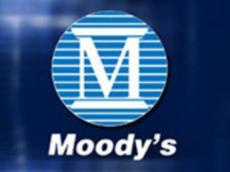|
|
TODAY.AZ / World news
'Political tensions remains a credit challenge for Turkey'
01 November 2012 [12:57] - TODAY.AZ
 Ratings agency Moody's said on Tuesday that a history of political friction between secular and religious elements of Turkish society remains a credit challenge for the country, Todays Zaman reported.
Ratings agency Moody's said on Tuesday that a history of political friction between secular and religious elements of Turkish society remains a credit challenge for the country, Todays Zaman reported.In a statement, Moody's also said it could consider upgrading Turkey if the government makes further progress in reducing its current account deficit, increasing foreign exchange reserves or reducing private sector external borrowing.
The statement came a day after the Turkish police fired tear gas and water cannon to disperse thousands of secularists at a banned rally on the country's republic day.
"Turkey's resilience to economic, financial and political vulnerabilities has strengthened considerably in recent years... Nonetheless, there are some noteworthy areas of political risk in Turkey, some of which stem from secular-religious tensions, others from longstanding regional and ethnic conflicts," Moody's said.
Moody's upgraded Turkey in June to Ba1, one notch below investment grade, and maintained a positive outlook, citing improvement in public finances.
Turkey's current positive outlook would likely be moved to stable if progress on managing external risks were reversed or public finances deteriorate, Moody's said.
The agency said it expects Turkey's large current account deficit, seen as its main economic vulnerability, to "remain relatively high at 7.8 percent and 7.4 percent of gross domestic product (GDP) in 2012 and 2013 respectively," Moody's said.
It forecast real GDP growth to slow in 2012 to three percent, from 8.5 percent in 2011.
"Although the market takes any rating-agency related news flow positively these days with the investment grade expectations, these conditions are not easy to achieve in the short term," wrote Özgür Altu?, chief economist at BGC Partners.
"Therefore, we think that it is unlikely to see an investment grade rating upgrade from Moody's in the short term."
Rival ratings agency Fitch said early in October it will hold a conference on Turkey's credit outlook in ?stanbul on Nov. 8. It too currently rates Turkey one notch below investment grade at BB+ with a stable outlook.
After Turkey's central bank kept monetary policy tight over the end of 2011 and the start of 2012, Turkey's current account deficit fell to $36.1 billion in the first eight months of 2011, down 33 percent from a year earlier. The gap reached 10 percent of GDP at the end of 2011.
/Trend/
URL: http://www.today.az/news/regions/114551.html
 Print version
Print version
Views: 1509
Connect with us. Get latest news and updates.
See Also
- 13 November 2025 [18:50]
Estonia to open five new embassies in 2026 - 13 November 2025 [09:00]
Carroll Shelby’s rare Ford GT goes to auction - 13 November 2025 [08:00]
Google boosts pixel phones with advanced AI - 12 November 2025 [22:23]
US sanctions on Lukoil threaten Bulgaria’s gas supply - 12 November 2025 [20:21]
Brazil launches Amazon transport alliance - 12 November 2025 [19:21]
Kazakhstan proposes age limits for social media - 12 November 2025 [11:02]
Türkiye and Georgia launch joint probe into military plane crash - 12 November 2025 [09:00]
South Korea, Netherlands hold talks on cybersecurity and AI in defense - 12 November 2025 [08:00]
Israel passes first reading of controversial death penalty bill - 11 November 2025 [23:33]
Explosion near Pakistan Supreme Court kills at least 12
Most Popular
 Armenian passion for Kazakh wheat
Armenian passion for Kazakh wheat
 Azerbaijani literature section opens at Albanian National Library
Azerbaijani literature section opens at Albanian National Library
 Brazil launches Amazon transport alliance
Brazil launches Amazon transport alliance
 ANCA has made another attempt to put pressure on Trump: The Theater of the absurd
ANCA has made another attempt to put pressure on Trump: The Theater of the absurd
 President Ilham Aliyev dismisses head of Goygol District Executive Power
President Ilham Aliyev dismisses head of Goygol District Executive Power
 Historic White House visit for Syria’s Sharaa as US pushes for Abraham Accords participation
Historic White House visit for Syria’s Sharaa as US pushes for Abraham Accords participation
 Baku emerges as key pivot in Trump’s vision for new Eurasian economic map
Baku emerges as key pivot in Trump’s vision for new Eurasian economic map
